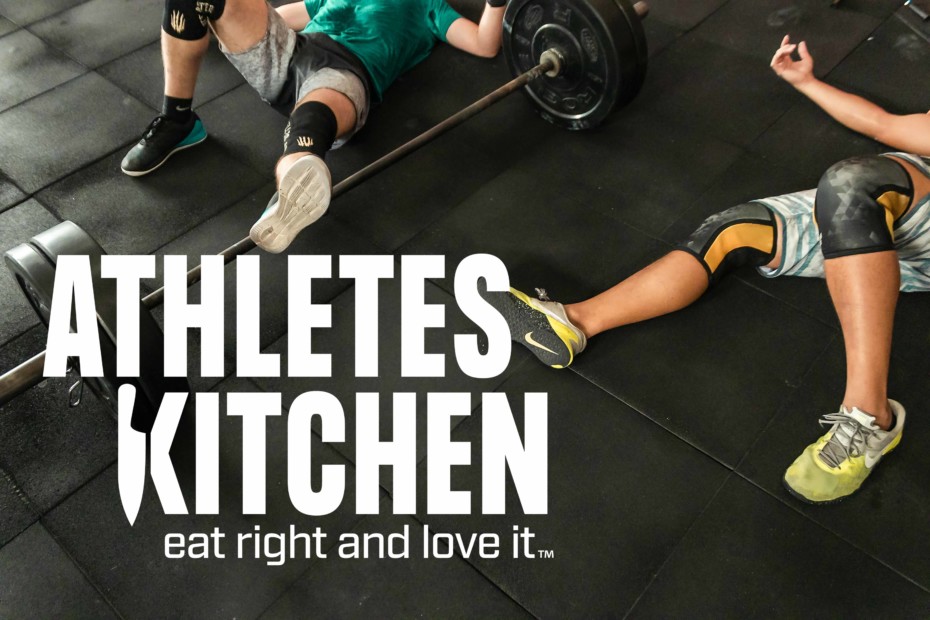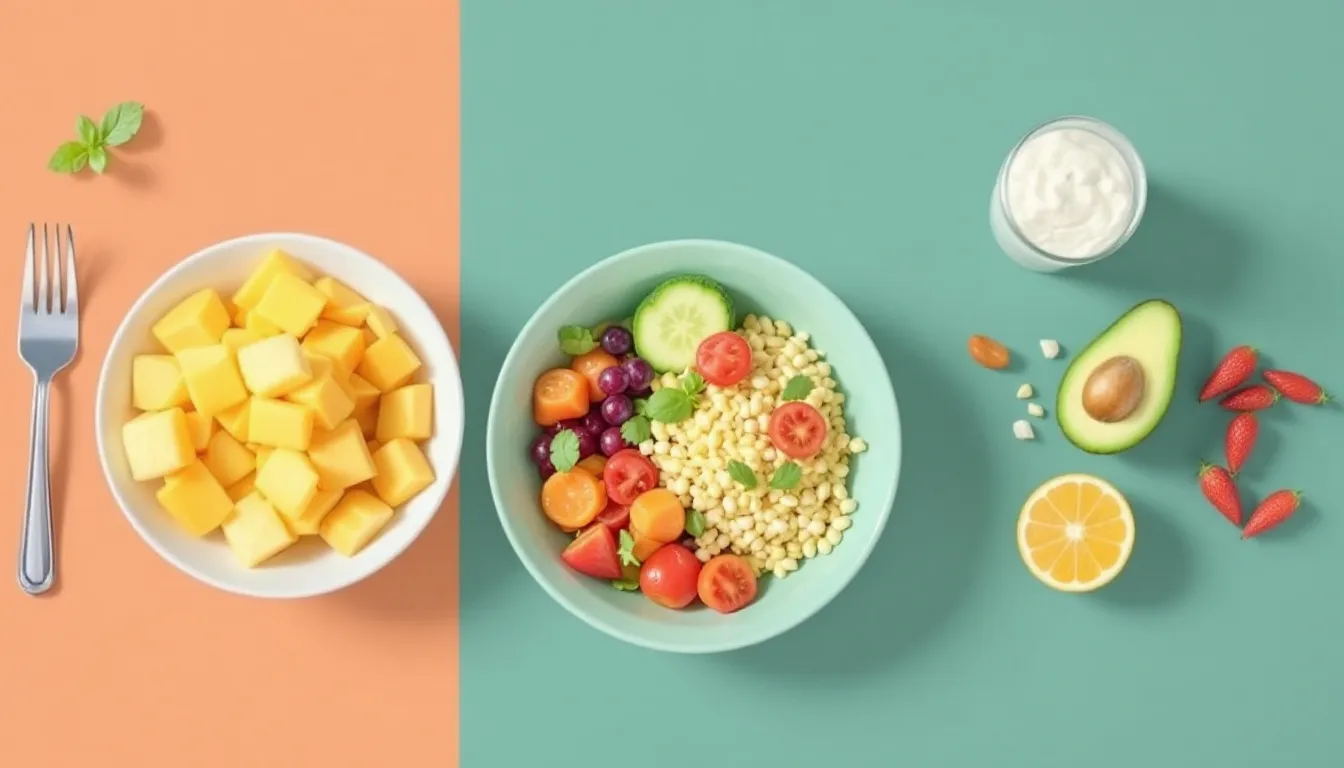Fuel Your Workouts and Avoid Burnouts
Top Nutrition Tips to Fuel Your Workouts and Avoid Burnout
Want to maximize your workout performance and prevent burnout? Discover how to fuel your workouts and avoid burnout with expert nutrition tips. Learn the optimal balance of macronutrients, hydration strategies, and recovery methods that keep you energized and performing at your best.
Key Takeaways
- Proper nutrition, including carbohydrates, proteins, and healthy fats, is essential for maximizing workout performance and preventing burnout.
- Hydration plays a vital role in maintaining energy levels and ensuring optimal muscle function, making it crucial to incorporate water and electrolyte-rich foods in your routine.
- Establishing balanced, realistic nutrition goals and listening to your body’s signals can enhance your fitness journey and promote sustainable health habits.
Understanding Workout Nutrition
Proper nutrition is the cornerstone of any successful workout routine. Just like a car needs the right fuel to run smoothly, your body requires the right nutrients to perform at its best. Without adequate nutrition, you risk feeling fatigued and unable to achieve your fitness goals. A balanced diet enhances energy levels, supports muscle recovery, and prevents overtraining.
Carbohydrates, proteins, and healthy fats each play unique roles in supporting your fitness journey. Understanding how these macronutrients contribute to your workouts can help you make informed choices about your diet. From providing quick energy to aiding in muscle repair, these nutrients are vital for anyone looking to improve their body composition and overall performance.
The Role of Carbohydrates in Exercise
Carbohydrates are the primary energy source for your body, especially during physical activities. When you engage in regular exercise, your body relies on glycogen stores derived from carbohydrates to fuel your workouts. Consuming complex carbohydrates like whole grains, legumes, and vegetables ensures you have sustained energy to power through your exercises without feeling sluggish.
Incorporating carbohydrates into your post-workout meals is crucial for replenishing glycogen stores, which helps in muscle recovery. Foods like bananas and eggs are excellent choices for recovery due to their high carbohydrate and protein content. Prioritizing carbs before and after workouts maintains high energy levels and supports performance.
Power Up with Protein
Protein is essential for muscle repair and growth, making it a critical component of any fitness routine. After workouts, consuming high-quality protein sources such as lean meats, fish, and dairy can significantly enhance muscle recovery. These foods provide the necessary amino acids to repair muscle tissue damaged during exercise, promoting stronger and more resilient muscles.
In addition to lean meats and fish, other excellent sources of protein include eggs, beans, and nuts. Including a variety of protein-rich foods in your diet ensures you get a broad spectrum of nutrients necessary for proper nutrition and muscle recovery. Powering up with protein supports natural repair processes and helps achieve strength training goals.
Healthy Fats for Sustained Energy
Healthy fats are another vital component of a balanced diet, providing sustained energy and supporting overall health. Foods like:
- avocados
- nuts
- seeds
- olive oil
are excellent sources of healthy fats, including fatty fish, that can keep you energized throughout your workouts. These fats are not only important for energy but also play a role in muscle recovery and maintaining proper nutrition.
Chia seeds, rich in omega-3 fatty acids and plant protein, are particularly beneficial for muscle recovery. Including healthy fats in your diet ensures you have a steady energy supply and supports various bodily functions necessary for regular exercise. Choosing the right foods maintains higher energy levels and improves overall fitness.
Hydration Strategies for Optimal Performance
Hydration is crucial for sustaining energy levels and supporting muscle function during workouts. Proper hydration prevents dehydration, which can lead to decreased performance and increased fatigue. Staying hydrated enhances fitness routines and prevents overtraining.
Consistent hydration is key to maintaining energy levels and supporting recovery during fitness routines. Ensuring you drink plenty of water and include hydration strategies in your workout routine can help you stay motivated and perform at your best.
Drink Plenty of Water
Staying hydrated is fundamental for maintaining energy levels and supporting muscle function during workouts. Neglecting to hydrate properly before a workout can lead to decreased performance and increased fatigue.
Drinking plenty of water promotes proper nutrition and ensures peak performance.
Electrolyte Balance
Electrolytes, such as sodium and potassium, play a crucial role in preventing dehydration and muscle cramps during physical activities. Sports drinks, coconut water, and electrolyte-infused waters can effectively replenish electrolytes lost during workouts, aiding in quicker recovery and reduced fatigue. Maintaining electrolyte balance is essential for sustaining energy levels and supporting overall performance.
Including electrolyte-rich beverages in your hydration strategy can help you stay hydrated and perform better. For those engaged in prolonged physical activities, sports drinks can provide the necessary electrolytes to keep you going. Adequate electrolyte intake enhances fitness routines and prevents overtraining.
Stay Hydrated with Fruits and Vegetables
Fruits and vegetables with high water content, such as watermelon, cantaloupe, cucumbers, and celery, are excellent choices for hydration. These foods not only contribute to your overall hydration but also provide essential vitamins and minerals necessary for proper nutrition. Incorporating these items into your diet can help you stay hydrated and support your fitness goals.
Hydrating fruits and vegetables are crucial for maintaining energy levels during physical activities. Including produce like cucumbers and tomatoes in meals enhances hydration levels and provides necessary nutrients for workouts. Staying hydrated with the right foods is an essential part of any fitness routine.
Pre-Workout Nutrition Tips
Fueling your body with the right nutrients before exercise is essential for enhancing energy and strength during workouts. Proper pre-workout nutrition helps prevent fatigue and supports overall performance. Understanding the best timing and foods for pre-workout meals optimizes fitness routines and achieves better results.
By timing your pre-workout meals correctly and choosing the right foods, you can ensure your body is well-prepared for exercise. Avoiding common pitfalls in pre-workout nutrition can help you maintain high energy levels and avoid discomfort during workouts. Following these nutrition tips can make a significant difference in your fitness journey.
Timing Your Pre-Workout Meal
The timing of your pre-workout meal is crucial for maximizing your energy levels during exercise. It is recommended to eat a meal consisting of healthy carbohydrates about two hours before exercising. This allows your body enough time to digest the food and convert it into energy, enhancing your performance and preventing fatigue.
If you need to eat closer to workout time, opt for simple carbohydrates and some protein to avoid discomfort. For optimal energy, larger meals should ideally be consumed 2-3 hours before exercising, while lighter snacks can be eaten 30-60 minutes prior.
Correct meal timing ensures sufficient energy for workouts.
Ideal Pre-Workout Foods
Choosing the right foods before a workout can significantly impact your performance. Quick-digesting carbohydrates, like fruits and whole-grain cereals, are ideal choices for pre-workout nutrition. These foods help maintain energy levels and avoid sluggishness, ensuring you can perform at your best during your fitness routine.
Combining carbohydrates with protein in pre-workout meals can enhance athletic performance and recovery. Foods such as bananas, granola, whole-grain cereals, and low-fat yogurt provide easily digestible carbs that fuel your workouts effectively. Including these foods in your diet can help you achieve your fitness goals more efficiently.
Avoiding Common Pitfalls
Failing to plan meal timing can lead to either insufficient energy or discomfort during exercise. Avoid foods high in saturated fats and proteins before workouts, as they slow digestion and can hinder performance. Eating the wrong types of food can result in poor digestion and decreased workout performance, which can affect your overall fitness journey.
Eating too close to workout time can lead to discomfort, while improper meal choices can result in poor performance. Avoiding common pitfalls in pre-workout nutrition ensures necessary energy and comfort for workouts.
Planning your meals carefully is essential for achieving your fitness goals efficiently.
Post-Workout Recovery Strategies
Proper nutrition enhances athletic performance and speeds up recovery after exercise. Consuming nutritious foods before exercising can significantly enhance workout performance and recovery. Focusing on post-workout nutrition supports muscle recovery, replenishes glycogen stores, and prepares the body for the next workout.
Incorporating recovery strategies such as proper hydration, foam rolling, and stretching can enhance muscle recovery and prevent injuries. Prioritizing post-workout recovery prevents overtraining and keeps your fitness journey on track.
These strategies are crucial for maintaining high energy levels and supporting overall performance.
Importance of Post-Workout Nutrition
Adequate post-workout nutrition is vital for repairing muscle tissue and replenishing glycogen stores. Consuming protein after exercise is crucial as it aids in replenishing muscle mass and promotes recovery. Post-workout meals that include protein and carbohydrates can significantly improve recovery and muscle protein synthesis, ensuring your body is ready for the next workout.
Proper nutrition after exercise enhances muscle protein synthesis and improves recovery outcomes. This approach helps in repairing muscle damage and replenishing glycogen stores, which are essential for maintaining energy levels and supporting overall performance.
Prioritizing post-workout nutrition is key to achieving your fitness goals.
Best Foods for Muscle Recovery
Protein is essential for muscle repair and helps reduce recovery time after workouts. Lean meats, fish, beans, and dairy are excellent sources of protein that support muscle recovery. Including healthy fats, such as those found in avocados and nuts, can also support overall health and energy levels during recovery.
Carbohydrates replenish glycogen stores used during intensive workouts, aiding recovery. Whole grains, fruits, and vegetables provide essential nutrients and carbohydrates necessary for recovery.
Combining protein, healthy fats, and carbohydrates in post-workout meals enhances muscle repair and boosts recovery, ensuring you feel energized and ready for the next workout.
Proper Rest and Recovery Techniques
Rest and recovery are essential to avoid overtraining and help the body heal and strengthen. Incorporating strategies such as foam rolling, stretching, and massage can significantly promote muscle recovery and enhance flexibility. Recognizing signs of fatigue can guide adjustments in both nutrition and exercise routines to prevent burnout.
Adequate sleep is crucial for quality sleep and muscle recovery, as it allows the body to repair and rejuvenate. Prioritizing sleep and incorporating recovery techniques into fitness routines prevents overtraining and prepares the body for building muscle for the next workout.
These strategies are vital for maintaining high energy levels and supporting overall performance.
Long-Term Nutrition Habits for Sustained Fitness
Building lasting habits, including a balanced diet and regular exercise, is essential for achieving long-term fitness goals. Incorporating recovery strategies can help prevent burnout and enhance fitness outcomes. Sustainable nutrition habits support your fitness journey and help achieve goals more efficiently.
Eating a diet rich in fruits and vegetables not only aids hydration but also provides essential nutrients like vitamins and minerals. Maintain your focus and ensure you stay hydrated. Additionally, pay attention to your body’s signals to help achieve your fitness goals.
Balanced Diet for Overall Health
A balanced diet is essential for maintaining overall health and well-being. Deficiencies in essential nutrients can impair immune system function and lead to health complications. By focusing on a balanced diet, you can enhance mental well-being and brain health alongside physical health.
A nutritionist can assist in managing chronic health conditions by providing specialized dietary recommendations. A balanced diet supports your fitness routine and helps achieve overall health goals more effectively.
Setting Realistic Nutrition Goals
Setting realistic nutrition goals is crucial for staying committed to your fitness journey and avoiding overtraining. Understanding your personal dietary needs can support the development of attainable nutrition goals that align with your lifestyle and fitness objectives.
Creating a meal plan that fits your goals and lifestyle can enhance your commitment to your nutrition. Engaging in regular meal prepping can keep you accountable to your nutrition goals and minimize unhealthy choices. Setting smaller, incremental goals maintains motivation and makes the overall goal more manageable.
Listening to Your Body’s Signals
Listening to your body’s signals is fundamental for effective training and wellness. Recognizing and responding to your body’s feedback can enhance performance, prevent burnout, and improve recovery. Each person has unique nutritional needs, and athletes should remain flexible and adjust their nutrition and workout plans based on their body’s feedback.
Paying attention to symptoms like tiredness, sluggishness, and poor digestion helps identify potential nutritional issues and make necessary adjustments. This approach ensures that you are meeting your body’s needs and supporting your overall fitness goals effectively.
Expert Advice for Personalized Nutrition Plans
Personalized nutrition plans are essential for maximizing athletic performance and overall health. Individualized dietary advice ensures that athletes meet their unique nutritional needs based on their sport and goals. Consulting with nutrition professionals can ensure that you receive tailored nutrition plans that align with your specific fitness goals.
A well-planned nutritional strategy can enhance athletic performance significantly, making it a critical factor for success in sports. Seeking expert advice helps create a customized nutrition and fitness plan, ensuring optimal results and preventing burnout.
Consulting a Nutritionist
Sports nutritionists can tailor meal plans based on an athlete’s specific goals and dietary restrictions. A nutritionist can provide tailored meal plans that align with unique dietary preferences and fitness objectives, significantly enhancing sports performance through customized meal strategies.
Engaging with a nutrition consultant can significantly enhance your fitness routine by providing personalized dietary advice. This approach ensures you receive the proper nutrition needed to support your fitness journey and achieve your goals effectively.
Using Nutritional Assessments
Nutritional assessments aim to identify potential nutritional problems. They also provide straightforward recommendations. These assessments aim to identify nutritional gaps and offer straightforward advice for dietary improvements. Nutritional assessments help address issues like tiredness, sluggishness, and poor digestion, indicating the need for dietary adjustments.
Individuals from various dietary backgrounds, including omnivores and herbivores, can gain insights from nutritional assessments. Improving dietary habits through these assessments can lead to enhanced mood and increased energy levels, supporting your overall fitness routine.
Tailored Fitness and Nutrition Programs
Tailored nutrition plans can significantly enhance energy levels, optimize muscle recovery, and maximize workout performance. Consulting a nutritionist can help create a personalized meal plan that aligns with individual fitness goals. Personalized fitness programs take into account individual body types, fitness levels, and specific goals, leading to more effective training regimens.
Customized programs can reduce the risk of injury and promote adherence by incorporating enjoyable activities and rest. Combining tailored nutrition with personalized fitness plans helps achieve sustainable results and prevent burnout.
This synergistic effect improves overall well-being and enhances performance.
Summary
Proper nutrition and hydration are fundamental for fueling your workouts and avoiding burnout. By understanding the role of carbohydrates, proteins, and healthy fats, timing your meals, and staying hydrated, you can enhance your performance and support muscle recovery. Setting realistic nutrition goals and listening to your body’s signals are crucial for long-term success. Seeking expert advice and using personalized plans can help you achieve your fitness goals more effectively. Stay committed, stay hydrated, and nourish your body to support your fitness journey.
Frequently Asked Questions
Why is hydration important during workouts?
Staying hydrated is essential during workouts to prevent dehydration, ensure optimal muscle function, and keep your energy levels high. So grab that water bottle and keep pushing your limits!
What are the best foods to eat before a workout?
To fuel your workout effectively, reach for quick-digesting carbohydrates such as fruits and whole-grain cereals—these will provide you with sustained energy to power through your exercise!
How can I avoid feeling sluggish during workouts?
To avoid feeling sluggish during workouts, focus on consuming complex carbohydrates and staying well-hydrated. These practices will keep your energy levels up and enhance your performance!
What should I eat after a workout for muscle recovery?
For optimal muscle recovery, focus on protein-rich foods like lean meats, fish, beans, and dairy. These nutrients will efficiently repair your muscle tissue and set you up for your next workout!
How can I set realistic nutrition goals?
To set realistic nutrition goals, tailor your meal plan to fit your personal needs and lifestyle. Break your objectives into smaller, achievable steps to keep your motivation high and stay committed!


